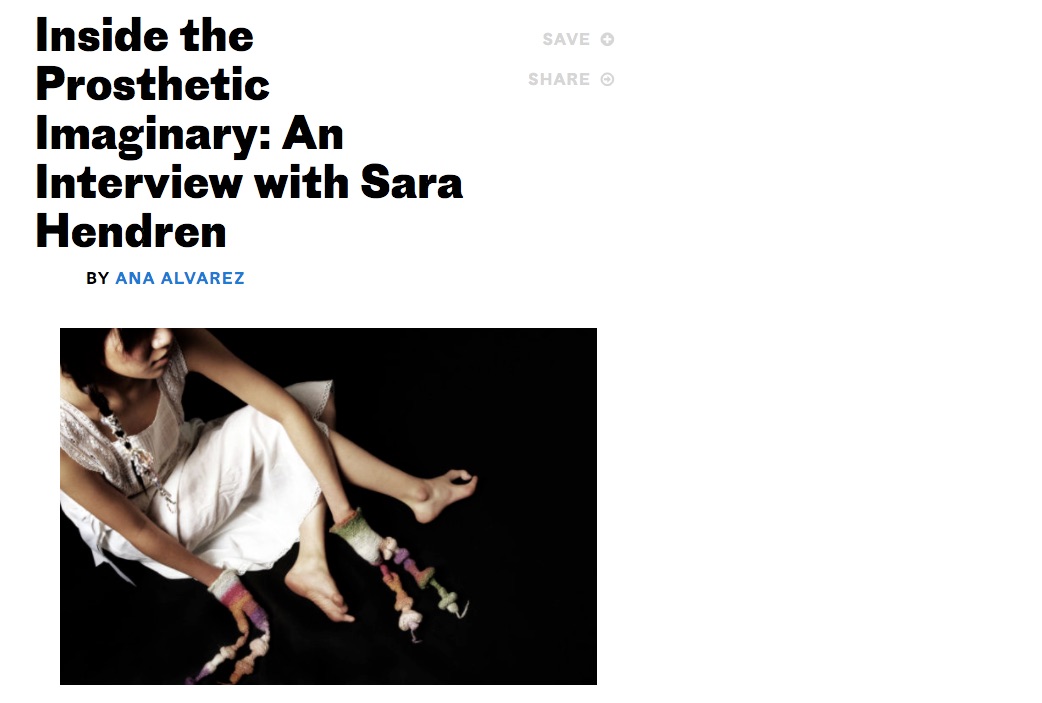year
project
tagged
2012
Inside the Prosthetic Imaginary, Rhizome
accessibility
engineering

An interview with Ana Alvarez at Rhizome:
Q: One of the things that piqued my interest most when I read your work is your ideas surrounding the cyborg. What is the cyborg to you, and what does this cyborgian future entail?
A: There tends to be either an overly sanguine story about the cyborg self—like, in the future, there will be no disability because, “Oh these legs don’t work anymore? I’ll just strap on new ones.” Or, conversely, there’s a kind of dystopian fascination with our dependence on technological proxies. People either imagine the liberatory cyborg, where we merge bodies and machines in a way that is clean and utopian, or where: Yikes! We’re all going to die, because the machine overlords—they’re coming! But both of those stories make a big leap over harder questions.
One of the things I say a lot when I lecture is that people with disabilities who are using assistive technologies every day are our richest resource of wisdom about the cyborg-self, about how we integrate technologies into our lives. They’ve been doing it in significant ways already, everyday, for a long time. But because we have these notions of assistive technologies as medicalized, and a kind of a medical-tragedy story we tell ourselves about these people, we have ignored them as a knowledge resource. We’re too busy consuming and replicating this very futuristic idea of the cyborg monster.
With Abler, I’m trying to engage a nearer future that is manifestly open, to suggest that there’s always contingency. We choose what to do with what we make. We should enter the post-human with our wits about us, with our critical eye on these things. Feminist and disability scholars have both long asked: Where is there recognition for experiences that involve dependence, or inter-dependence? How do we make a culture that affords space for those experiences, instead of continuing our obsession with one kind of useful-able-bodied-autonomous-unfettered self? I’m not sure interdependence is a thing we want to wholly eradicate from the human experience. I want an alternative to the idea that absolute autonomy is the only desirable state of being.
The whole thing is here.